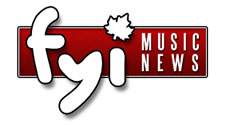In the introduction to his 2010 book Blood, Sweat _ Tears, David Clayton-Thomas writes “I’m sure the recollections of some of the people I write about will differ from mine and that’s just the way it is”. The following recollection from Da Capo, the unpublished memoir written by Bill Gilliland, offers an insider’s account of events leading up to the singer joining the group, Blood, Sweat _ Tears.
The following from Da Capo, printed with permission by the author.
 In the fall of 1967, David Clayton-Thomas returned to Toronto from New York City where he had been seeking fame and fortune for far too long. He told me he wanted a deal under which he personally could produce himself and his songs. The instrumentation would be simple: guitar, bass and drums. I listened to a couple of the new songs he was working on. Then, after discussing recording budgets and the pitfalls of self-production, I signed him as a singer, a songwriter and a producer. I then let him loose in the Arc/Yorkville recording studio.
In the fall of 1967, David Clayton-Thomas returned to Toronto from New York City where he had been seeking fame and fortune for far too long. He told me he wanted a deal under which he personally could produce himself and his songs. The instrumentation would be simple: guitar, bass and drums. I listened to a couple of the new songs he was working on. Then, after discussing recording budgets and the pitfalls of self-production, I signed him as a singer, a songwriter and a producer. I then let him loose in the Arc/Yorkville recording studio.
David finished four productions: “Father Dear Father”, “Chairman Of The Bored”, “Lucretia Mac Evil” and “Spinning Wheel”. To my ears, David’s voice and songs were better suited to the sound of a group called The Buckinghams than the Jimi Hendrix sound he was leaning towards. I convinced him to abandon the self-production approach and put him into a rehearsal hall to write seven or eight additional songs. Hopefully these songs, plus new arrangements of the four he had just produced, would make for a great album. I offered to pay for a music arranger of his choice, if he wanted one. I recommended Bob Halley, the guy who had recently done the arrangement for The Ugly Ducklings’ hit “Gaslight” and the string arrangement for Ronnie Hawkins’ hit “Home from the Forest”. The plan was to produce a simple but effective demotape with which I would go shopping for an appropriate producer.
We were a happening Canadian indy! While David was in the rehearsal hall, I had Ronnie Hawkins in the Arc/Yorkville recording studio with the producer Brian Ahern working on the “Home From the Forest” album, and I was finalizing a recording contract with Anne Murray… her first. Additionally, I had Richard Gael and Pat Riccio Jr., who would later become Anne Murray’s musical director, writing songs for a concept album called “An Eye For An Ear”. It was picked up by MCA in the U.S. and released in 1969.
“Throughout the winter of 1968, I dropped into David’s rehearsals once a week to hear how things were going. I was pleased with the progress and I thought David was too.
I was in for a surprise!
One week during the late winter, I dropped into rehearsals and David wasn’t there. “Where’s David?” I asked. “He’s gone to New York to audition for a band called Blood, Sweat _ Tears”, replied John Mowbray, one of the musicians with whom David was working. I was paying the musicians weekly so they were at rehearsal praying that David would return.
I guess if you lived in New York City and hung out in Greenwich Village, you’d have known who Blood, Sweat _ Tears were. But I was hanging out in Yorkville Village in Toronto. I’d never heard of them! I quickly investigated and learned they were a brand new band whose first album had just been released. Why would David be auditioning for them? What was I to do, fly to New York and drag him back to Toronto? I think not!
I felt betrayed! I’d spent precious time and good money, nearly twelve thousand dollars, on a guy with a badass reputation and he walked out on me without even saying goodbye. The money I spent doesn’t seem like much today, but in the late 1960’s it was substantial. In December 1967, Columbia Records signed Blood, Sweat _ Tears for twenty-five thousand dollars.
Months went by and I had not heard from David. Then on February 1, 1969, Blood, Sweat _ Tears second album debuted on the Billboard chart. Low and behold, David Clayton-Thomas was on the album! Ironically, the album was produced by Jim Guercio, the guy who produced The Buckinghams.
In his 1974 book, ‘Inside The Record Business’, Clive Davis, the exec who signed Blood, Sweat _ Tears to Columbia Records, wrote that David Clayton-Thomas was given to violent bursts of temper and was not interested in technicalities. David’s contract with Arc/Yorkville was one of those technicalities. In the spring of 1969, Columbia Records did a deal with Arc/Yorkville for the services of David Clayton-Thomas.
In 1972, David quit Blood Sweat _ Tears. He told Clive Davis, then president of Columbia Records, that he no longer felt musical rapport with the group and he didn’t enjoy them as people any longer. David subsequently recorded two solo albums for the label, and when neither album sold well, he demanded release from his contract and sued Columbia Records and Clive Davis. C’est la vie!
© Bill Gilliland, 1992 Book, DaCapo (unpublished)









